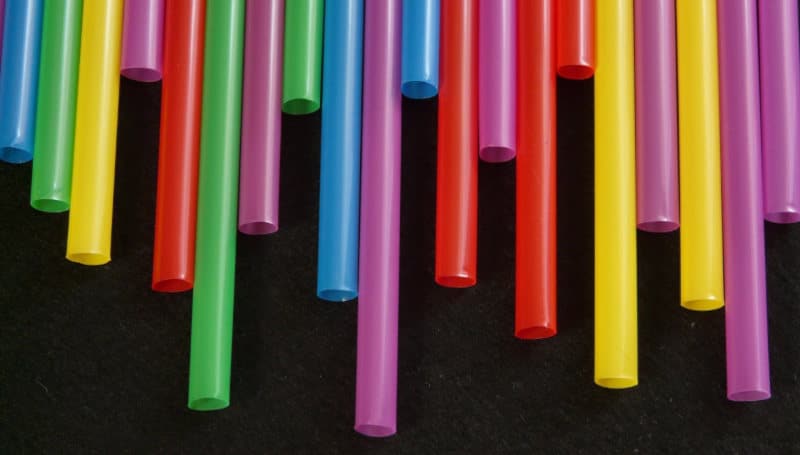Plastic, the ubiquitous material that has revolutionized our consumption, now poses a grave threat to our environment. From kitchen appliances to bottles and bags, plastic has infiltrated every aspect of our lives.
Among its most prevalent and problematic manifestations are plastic straws, which have gained unprecedented popularity. However, the environmental consequences of plastic cannot be ignored.
The perils of plastic
Plastic, when discarded, contaminates the soil, air, and water with hazardous chemicals, posing a threat to humans, animals, plants, and the environment at large. Shockingly, studies reveal that over a million seabirds and hundreds of thousands of marine animals perish each year due to plastic pollution in our oceans. A distressing number of seabirds, sea turtles, and fish now bear the burden of plastic waste either on their bodies or inside them. The impact of plastic on wildlife is undeniable, but its risks to human health cannot be overlooked either. Disposable plastic items, especially plastic straws, contribute significantly to this excessive pollution.
A better alternative to plastic straws
Recognizing the dangers posed by single-use plastic items, many companies have introduced eco-friendly alternatives to plastic straws. However, it is crucial not only to embrace environmentally safe options but also to reduce straw usage whenever possible in order to protect our environment. Fortunately, the internet offers a wealth of information on alternative drinking straws, which can be conveniently purchased online. These alternatives primarily fall into two categories: reusable and disposable single-use straws. Options abound, including glass, bamboo, tin, grass, papaya leaves, and paper straws. Each material has its own merits and drawbacks, making it suitable for specific situations.
Exploring reusable straws
Reusable straws are designed for multiple uses, becoming an integral part of your tableware collection. Several types of reusable straws are available:
- Glass straws: Exquisite and visually appealing, glass straws offer various sizes and designs. However, due to their fragility, they are best suited for home use and require careful handling when exposed to hot liquids.
- Bamboo straws: Cost-effective and environmentally friendly, bamboo straws pose challenges when it comes to cleaning.
- Silicone straws: A reliable replacement for plastic, silicone straws can be reused but lack efficient recycling options.
- Metal straws: Similar to glass straws in terms of pros and cons, metal straws are reusable but come with a higher price tag and limitations when used with hot beverages.
- Carbon fiber straws: The cutting-edge option, albeit the most expensive, offers full reusability and exceptional lightweight properties.
While reusable straws are undoubtedly better for the environment, they are more suitable for personal use, requiring additional cleaning time and storage space. For cafes and restaurants, single-use straws often prove to be a more convenient choice.
Environmentally safe single-use straws
Although disposable straws cannot be reused, they are practical for public places and eateries. The following are some of the popular single-use straw options available:
- Paper straws: Among the earliest alternatives to plastic, paper straws are cost-effective and available in various sizes. However, they tend to be the least durable and might contain chemical or plastic additives.
- Rice straws: A recent addition to the market, these edible straws have a short lifespan and quickly dissolve in water.
- Cane straws: Another viable replacement for plastic, cane straws require careful selection as some adhesive chemicals are used in their production.
- Papaya leaf stem straws: Crafted from 100% natural papaya leaf stems, these straws are chemical-free and available in larger sizes. However, they can be challenging to find in the market.
- Ice straws: Surprisingly, ice straws are a real innovation. Though unique and visually appealing, they melt quickly and are not suitable for hot beverages.
- Pasta straws: Similar to rice straws, pasta straws have pros and cons and may subtly alter the taste of your drinks.
- Grass straws: Made from Lepironia articulata grass, predominantly found in Southeast Asia and abundant in Vietnam, grass straws are safe for the environment.
The best alternative to plastic straws
Determining the ideal replacement for plastic straws depends on personal preferences and specific usage scenarios. However, the ultimate goal should be to cultivate habits that protect the environment and promote conscious consumer choices. Among the available options, grass straws stand out as one of the best choices. They are entirely natural, biodegradable, safe for use, and do not impact the taste of beverages. By embracing such alternatives, we can contribute to the preservation of our planet.





